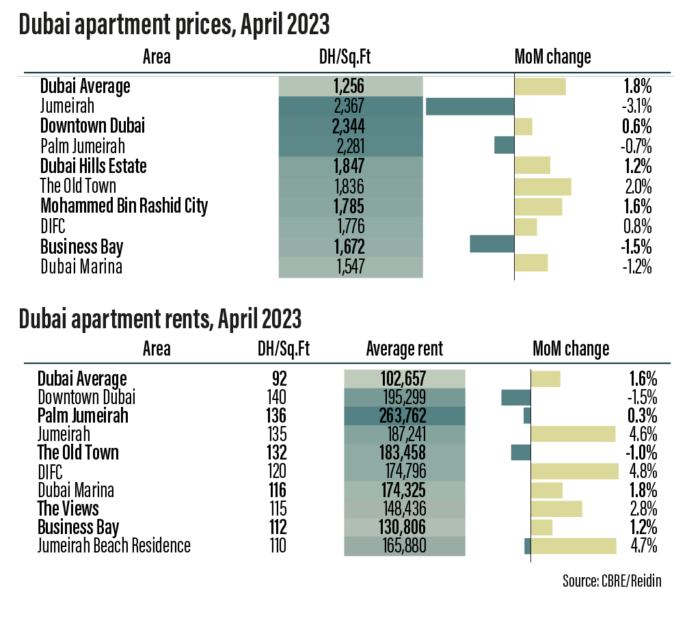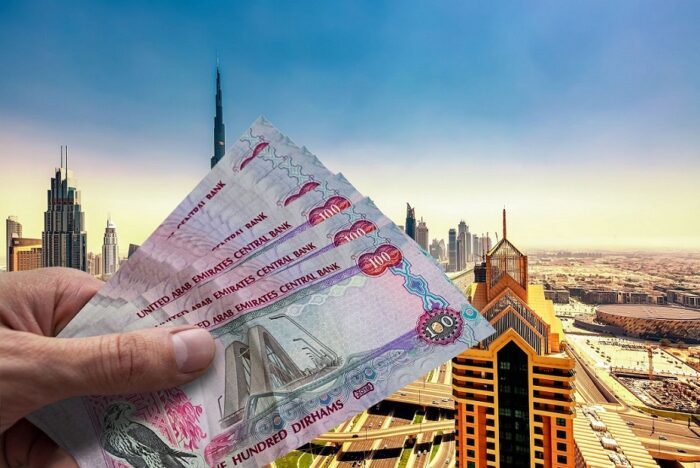
Dubai, a bustling metropolis in the United Arab Emirates, beckons with its opulent lifestyle, vibrant culture, and promising opportunities. For many considering a move to this global city, understanding the basic cost of living is paramount. At the core of this pursuit lies an intricate balance between expenses and lifestyle expectations. In this comprehensive guide, we dissect Dubai’s essential cost of living factors, enabling you to navigate its financial landscape with confidence.

The Spectrum of Housing Costs in Dubai
Residential Accommodation: Housing costs encompass a significant portion of one’s expenses in Dubai. The city offers a spectrum of housing options ranging from lavish villas and high-end apartments in exclusive neighborhoods to more modest accommodations in suburban areas. Rentals typically constitute a substantial chunk of an individual’s expenditure, varying significantly based on location, size, and amenities.
Luxurious Enclaves: Dubai’s upscale areas such as the Palm Jumeirah, Downtown Dubai, and Emirates Hills boast extravagant residences, commanding premium rental prices. These areas cater to those seeking an opulent lifestyle amidst the city’s iconic landmarks, with rentals for spacious apartments and villas soaring high.
Budget-Friendly Zones: Conversely, districts like Al Nahda, International City, and Discovery Gardens offer more affordable housing options without compromising on quality. These areas feature reasonably priced accommodations, making them favorable for individuals seeking a balance between cost-effectiveness and comfort.
Factors Influencing Cost of Living in Dubai
Dubai’s cost of living hinges on several pivotal factors that directly impact one’s expenditure:

Housing Costs
The pulse of Dubai’s cost of living beats prominently in its housing sector. The city offers a spectrum of accommodation options, ranging from luxurious apartments to contemporary villas. Rental prices vary significantly based on location, amenities, and proximity to central areas such as Downtown Dubai or the Marina district.
Utilities and Household Expenses
Beyond accommodation, utilities contribute substantially to living expenses. Water, electricity, cooling, and internet services are necessities with fluctuating costs based on usage and service providers.
Transportation Expenses
Dubai’s transport system, encompassing taxis, metro, and private vehicles, affects the cost of living. Expenses vary according to individual travel habits and reliance on public or private transportation modes.
Education and Healthcare Costs
For expatriates settling in Dubai, education and healthcare expenses merit attention. International schools and healthcare facilities uphold high standards but come with corresponding financial implications.
Budgeting Strategies for Living in Dubai
Strategizing a budget tailored to Dubai’s cost of living dynamics demands a meticulous approach:

Cost Comparison and Analysis
Before relocating, conducting a thorough cost comparison analysis aids in estimating monthly expenses accurately. This involves scrutinizing housing, transportation, education, healthcare, and miscellaneous costs.
Financial Planning and Saving Tips
Employing efficient financial planning methods and adopting money-saving tactics significantly ease the financial strain of living in Dubai. This includes exploring cost-effective leisure options, minimizing utility consumption, and leveraging discount programs.
Employment Opportunities and Income Assessment
Evaluating potential income against living expenses is vital. Exploiting Dubai’s diverse employment landscape and considering salary packages in line with living expenses can ensure financial stability.
Comparative Analysis with Other Global Cities
Contrast with Major International Metropolises
When compared to cities like New York, London, or Singapore, Dubai’s cost of living can vary significantly. Factors such as taxation, housing affordability, and lifestyle choices define the comparative cost dynamics.
Cost Variations in Comparison to New York, London, etc.
Dubai’s tax-free income and lower housing costs often offer a more financially appealing lifestyle for expatriates compared to cities like New York or London. However, certain commodities might be pricier due to importation and local regulations.
Employment and Income Dynamics
Job Market and Salary Ranges
Dubai’s job market is diverse, offering opportunities in finance, technology, hospitality, and more. Salary ranges vary widely based on qualifications and industry, with some sectors providing attractive compensation packages.
Understanding Taxation and Savings
Dubai’s tax-free income model can significantly impact disposable income. However, managing savings and understanding local regulations is crucial for expatriates.
Strategies for Budgeting and Cost Management

Tips for Saving and Cutting Expenses
Implementing a budgeting strategy, exploring cost-effective housing options, utilizing public transportation, and smart grocery shopping are effective ways to manage expenses.
Budgeting for a Comfortable Lifestyle
Balancing expenditure with lifestyle preferences ensures a comfortable living experience in Dubai. Prioritizing needs over wants and seeking value for money aids in maintaining financial stability.
Tips for Managing and Budgeting Expenses
Strategies for cost-effective living, budgeting techniques, and prudent financial planning assist residents in managing expenses efficiently.
Cultural Considerations in Expenses
Understanding cultural norms and their influence on spending habits can provide insights into adapting and budgeting effectively in Dubai.
Employment and Income Dynamics
The available income opportunities in Dubai directly impact the cost of living. Understanding this relationship aids in financial planning.
Future Trends and Predictions
Anticipating changes in living expenses, considering economic shifts, and evolving trends help in preparing for the future cost of living in Dubai.

FAQs (Frequently Asked Questions)
Is Dubai an expensive city to live in?
- Dubai can be considered expensive, especially concerning housing and certain lifestyle choices. However, with informed decisions, it is possible to manage expenses effectively.
What are the average housing costs in Dubai?
- Housing costs vary widely based on location, size, and amenities. On average, rents for apartments can range from X to Y AED per month.
Are healthcare facilities in Dubai costly?
- Healthcare in Dubai can be expensive, but quality services are available. Having comprehensive health insurance is advisable to cover medical expenses.
How can one save on transportation in Dubai?
- Opting for public transportation, like the metro or buses, offers a cost-effective way to commute. Consider purchasing monthly or yearly passes for better savings.
Are there affordable education options in Dubai?
- Dubai offers a variety of schools with different fee structures. Researching and exploring schools that align with your budget is key to finding affordable education.
Can I enjoy a budget-friendly lifestyle in Dubai?
- Yes, with strategic planning and making informed choices, it’s possible to enjoy a comfortable yet budget-friendly lifestyle in Dubai.
Conclusion
In conclusion, understanding the basic cost of living in Dubai necessitates a comprehensive analysis of various factors, from housing and transportation to income dynamics and lifestyle choices. Dubai’s unique blend of opportunities and lifestyle demands prudent financial planning for a fulfilling experience in this vibrant city.






